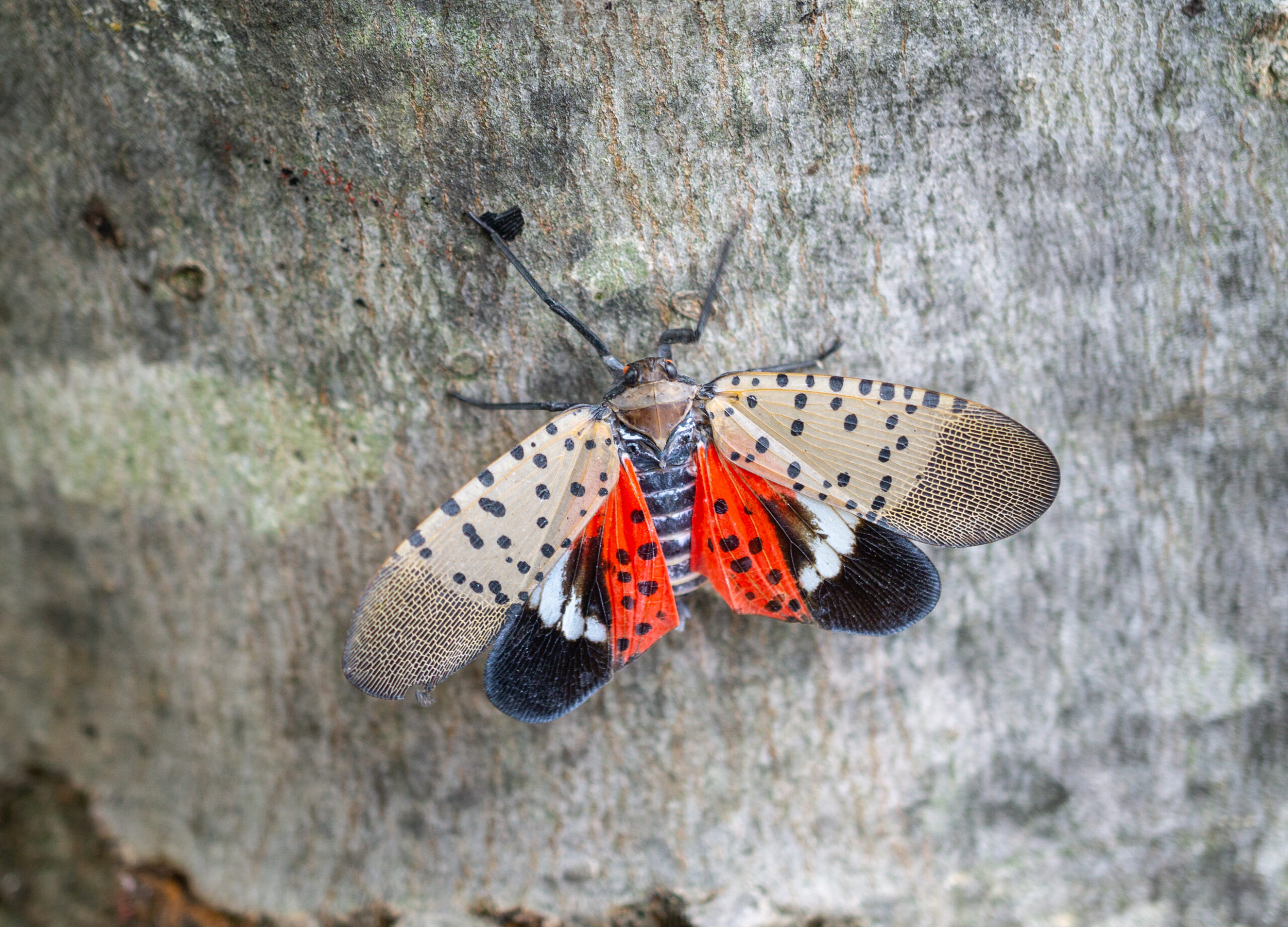
A dozen Ohio counties are currently under a quarantine for transporting plant material as the state works to get a handle on its growing spotted lanternfly problem.
The invasive spotted lanternfly is being spread primarily by hitchhiking. The quarantine aims to stop by putting in place requirements for businesses that ship goods across county lines, Ohio Department of Agriculture Division of Plant Health Chief Dan Kenny said.
“Businesses that, primarily, deal with plant materials like logs, or nursery stock, we ask them to sign up on a compliance agreement,” he said. “So we, we throw some additional requirements, on shipments from those areas to try to mitigate any chance of spotted lanternfly moving out from Ohio to, say, over to Indiana or farther out.”
Spotted lanternfly populations could continue to grow until the insect has a direct predator, Kenny said, as they’ve witnessed with other invasive insects.
“It’s possible that that something will, you know, learn to learn to love to eat spotted lanternfly,” Kenny said. “We’ve seen a little bit of that with like, woodpeckers with … emerald ash borer where they do kind of learn that, like, ‘okay, we can eat this thing.'”
In the meantime, the ODA is working with the U.S. Department of Agriculture on a treatment a plan along transportation corridors, Kenny said.
USDA is working on a few treatment methods, including a parasitoid, in an effort to avoid relying solely on pesticides, said Spotted Lanternfly Program National Policy Manager Matthew Travis.
“It takes a lot more work to develop it to ensure that it’s not going to parasitize any native insect species,” Travis said. “It’s very important that we do our due diligence and really test the insect, test the parasitoid to make sure that it’s safe, [so] when we get to that that step where we’re able to start doing some limited releases that we’re not going to be affecting the environment or the native insect population negatively.”
Unlike other invasives such as the emerald ash borer, spotted lanternflies don’t pose an immediate risk to plant health, Kenny said. Instead, the insects tends to be a nuisance to homeowners and businesses due to the sticky substance called honeydew that they leave behind.
“It can stain your patio. It can, you know, it can affect things that are underneath not unlike some other insects that you may have build up,” he said. “The concern is really for grapes and some of these other specialty crops that folks may be growing in the backyard.”
For this reason, spotted lanternflies are expected to have a particular affect on vineyards and maple farms in the state, said Amy Stone, extension educator for Agriculture and Natural Resources with Ohio State University in Lucas County.
“As we move into kind of agriculture, we know that this insect can have an impact in our vineyards, in our hops fields or yards,” she said. “It also impacts potentially our beekeepers as the bees go out and collect the honeydew and bring that back to the hive, as well as maple syrup production.”
Spotted lanternflies can be captured and disposed of, Stone said, and are less active in the early morning.
Other forms of treatment include scraping off egg sacs, using insecticides or removing the lanternfly’s preferred plant – the Ailanthus altissima tree commonly called the tree of heaven.
“The Ailanthus tree is an invasive, species anyway, and it’s good practice to get rid of that,” he said. “That should help reduce the population of [spotted lanternfly] that builds up.”
Catch more news at Great Lakes Now:
Northeast Ohio composters reduce emissions from food waste, one pile at a time
Oberlin Food Hub brings fresh produce to Ohio’s food banks while supporting local farmers
Featured image: Top view of spotted lanternfly, Chester County, Pennsylvania. (Photo Credit: iStock)




